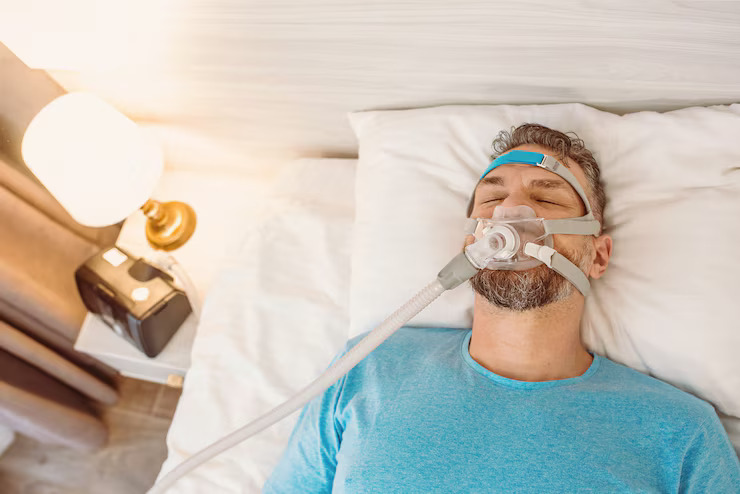
The Connection Between Sleep Apnea and Overall Health
Sleep is an essential pillar of overall health and well-being. Yet, for millions of Americans, restful sleep remains elusive due to sleep disorders like sleep apnea. Sleep apnea is a condition that, if left untreated, can impact not only the quality of sleep but also significantly affect overall health. In Burlington, Vermont, Chittenden Dental is dedicated to helping patients understand the risks associated with sleep apnea and providing solutions to ensure healthier, more restorative sleep.
What is Sleep Apnea?
Sleep apnea is a sleep disorder characterized by interrupted breathing during sleep. These interruptions, or pauses, can last for a few seconds to minutes and may occur multiple times per hour. The two primary types of sleep apnea are:
- Obstructive Sleep Apnea (OSA): The most common type, caused by the relaxation of throat muscles, which block the airway during sleep.
- Central Sleep Apnea: Occurs when the brain fails to send the proper signals to the muscles that control breathing.
Both forms of sleep apnea can be dangerous if left untreated, but OSA is more prevalent and the focus of this article.
How Sleep Apnea Affects Overall Health
Untreated sleep apnea is more than just a nighttime disturbance; it’s a serious condition that can have a ripple effect on various aspects of your overall health.
1. Heart Health
One of the most concerning connections between sleep apnea and overall health is its impact on heart health. Sleep apnea can lead to:
- High Blood Pressure: Frequent pauses in breathing cause oxygen levels in the blood to drop, triggering the body’s stress response. This can cause spikes in blood pressure during the night, which often persists into daytime, increasing the risk of hypertension.
- Heart Disease: The repeated drops in oxygen levels, along with increased blood pressure, put strain on the heart. Studies show that people with untreated sleep apnea are at greater risk of developing heart conditions such as arrhythmias, heart failure, and stroke.
2. Cognitive Function
Sleep apnea doesn’t just affect your heart—it also impacts your brain. Individuals suffering from sleep apnea often experience:
- Memory Problems: Poor sleep interferes with the brain’s ability to store and process information, leading to memory issues.
- Difficulty Concentrating: Lack of restful sleep affects cognitive abilities, making it harder to focus and think clearly during the day.
- Mood Swings and Depression: Sleep deprivation caused by apnea can lead to irritability, mood swings, and, in severe cases, depression.
3. Diabetes and Metabolic Health
Sleep apnea is also linked to an increased risk of developing type 2 diabetes. Poor sleep can lead to insulin resistance, making it more difficult for the body to regulate blood sugar levels. Additionally, obesity—a major risk factor for sleep apnea—can further complicate metabolic health.
4. Weight Gain
A cycle exists between sleep apnea and weight gain. Sleep apnea contributes to poor sleep quality, which can disrupt hormone levels, particularly those responsible for hunger and fullness. This imbalance can lead to overeating and weight gain, further exacerbating sleep apnea symptoms.
5. Immune System Function
Sleep is critical for maintaining a strong immune system. Chronic sleep deprivation, which is common in sleep apnea patients, weakens the immune system, making it harder for the body to fight off infections. This can lead to more frequent illnesses and slower recovery times.
Recognizing the Symptoms of Sleep Apnea
Sleep apnea often goes undiagnosed because people don’t realize they have it—it occurs while they’re asleep! Common symptoms include:
- Loud snoring
- Episodes of stopped breathing during sleep (often noticed by a partner)
- Gasping or choking during sleep
- Daytime fatigue or sleepiness
- Morning headaches
- Irritability or mood changes
If you experience any of these symptoms, it may be time to seek a professional diagnosis.
The Importance of Early Intervention
Ignoring sleep apnea can lead to more serious health problems down the line. However, with proper treatment, many of the negative health effects can be avoided or mitigated. Addressing sleep apnea early can improve your quality of life, reduce your risk of developing heart disease or diabetes, and restore your overall health.
Conclusion: Prioritizing Sleep for Better Health
Sleep is crucial for maintaining a healthy body and mind, and sleep apnea is a condition that should never be overlooked. If you’re experiencing any symptoms of sleep apnea or have concerns about your sleep quality, we at Chittenden Dental in Burlington, Vermont, are here to help. Don’t wait—take the first step towards better sleep and improved health by scheduling an appointment with our expert team today.



